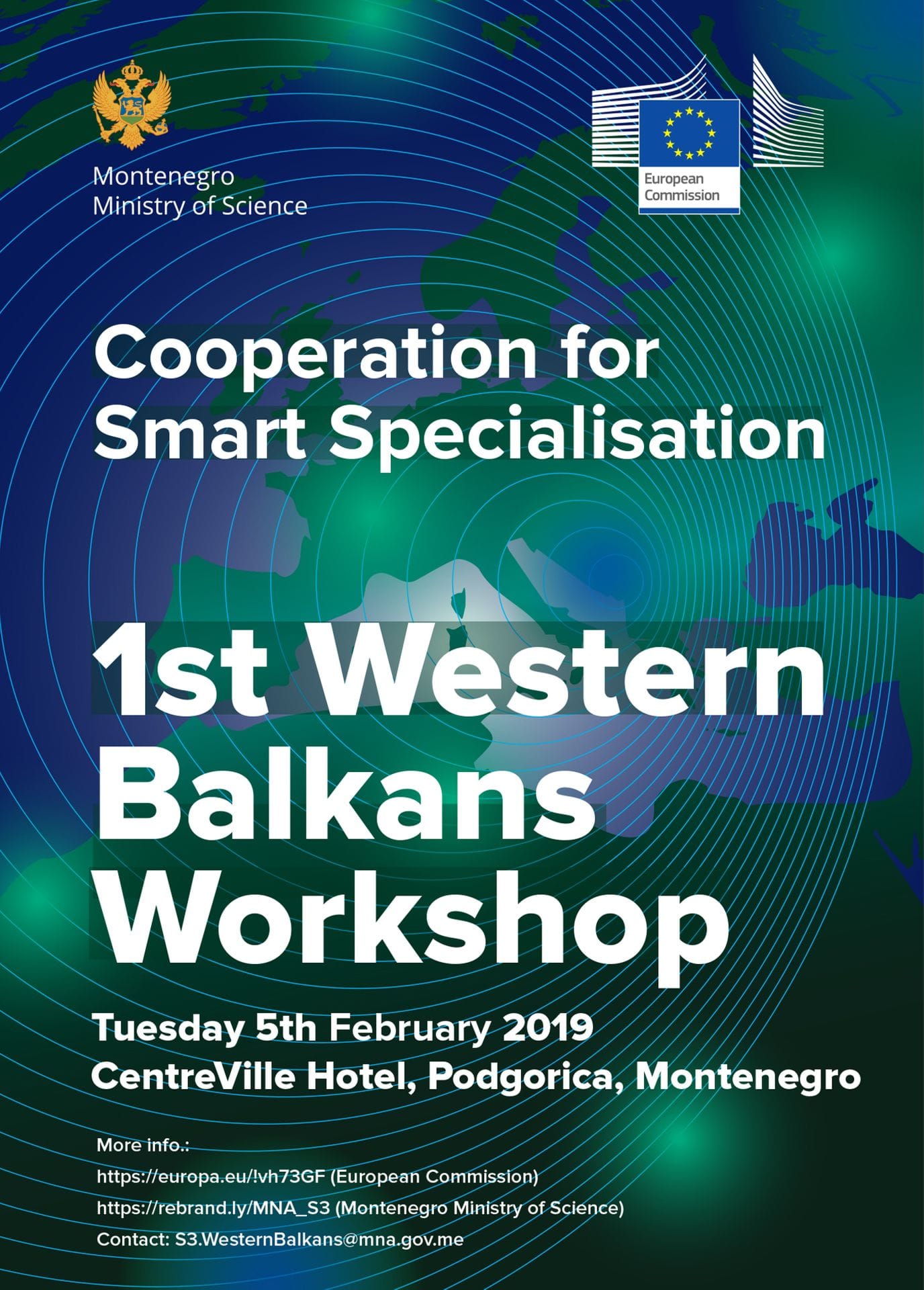- Government of Montenegro
Ministry of Education, Science and Innovation Workshop on smart specialisation, co-organized by ...
Workshop on smart specialisation, co-organized by the Ministry of Science and European Commission's Joint Research Centre
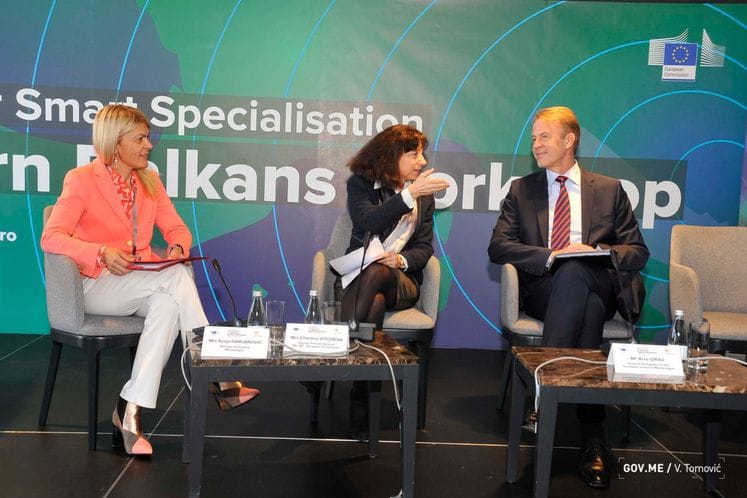
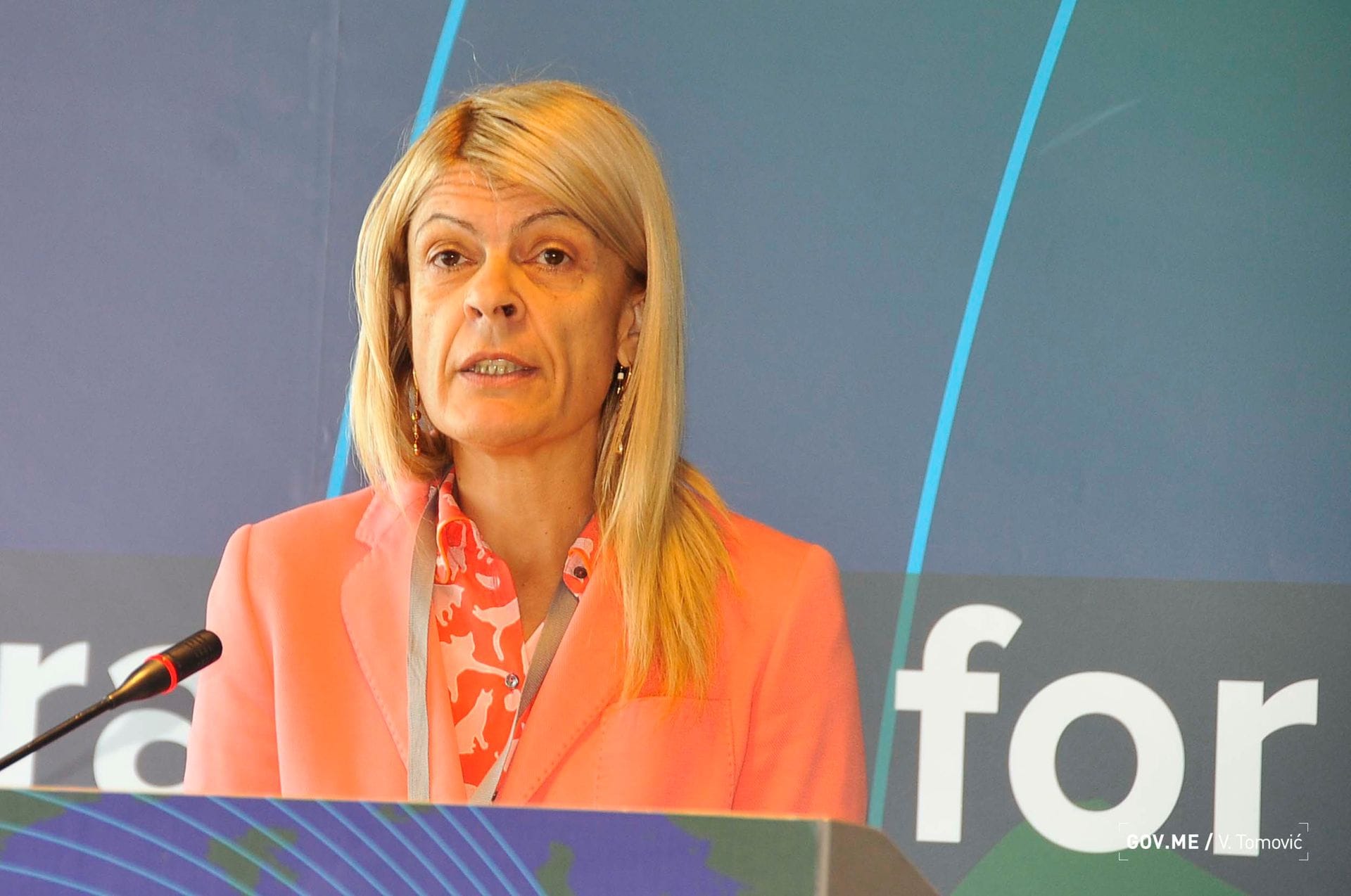
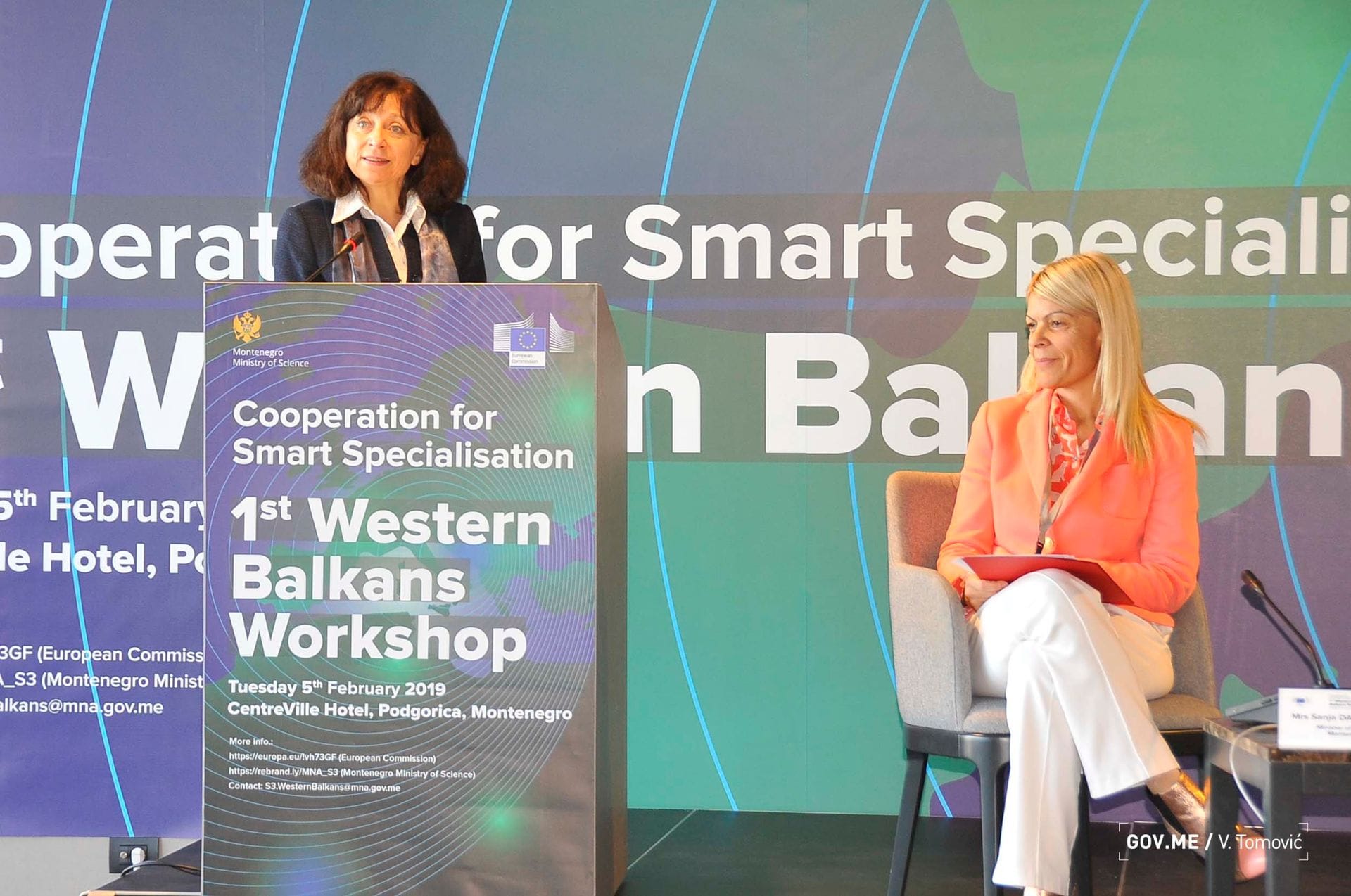
The workshop was also attended by Ms Charlina Vitcheva, Deputy Director-General, DG JRC, as well as by eminent experts from 13 countries of the Western Balkans and Europe.
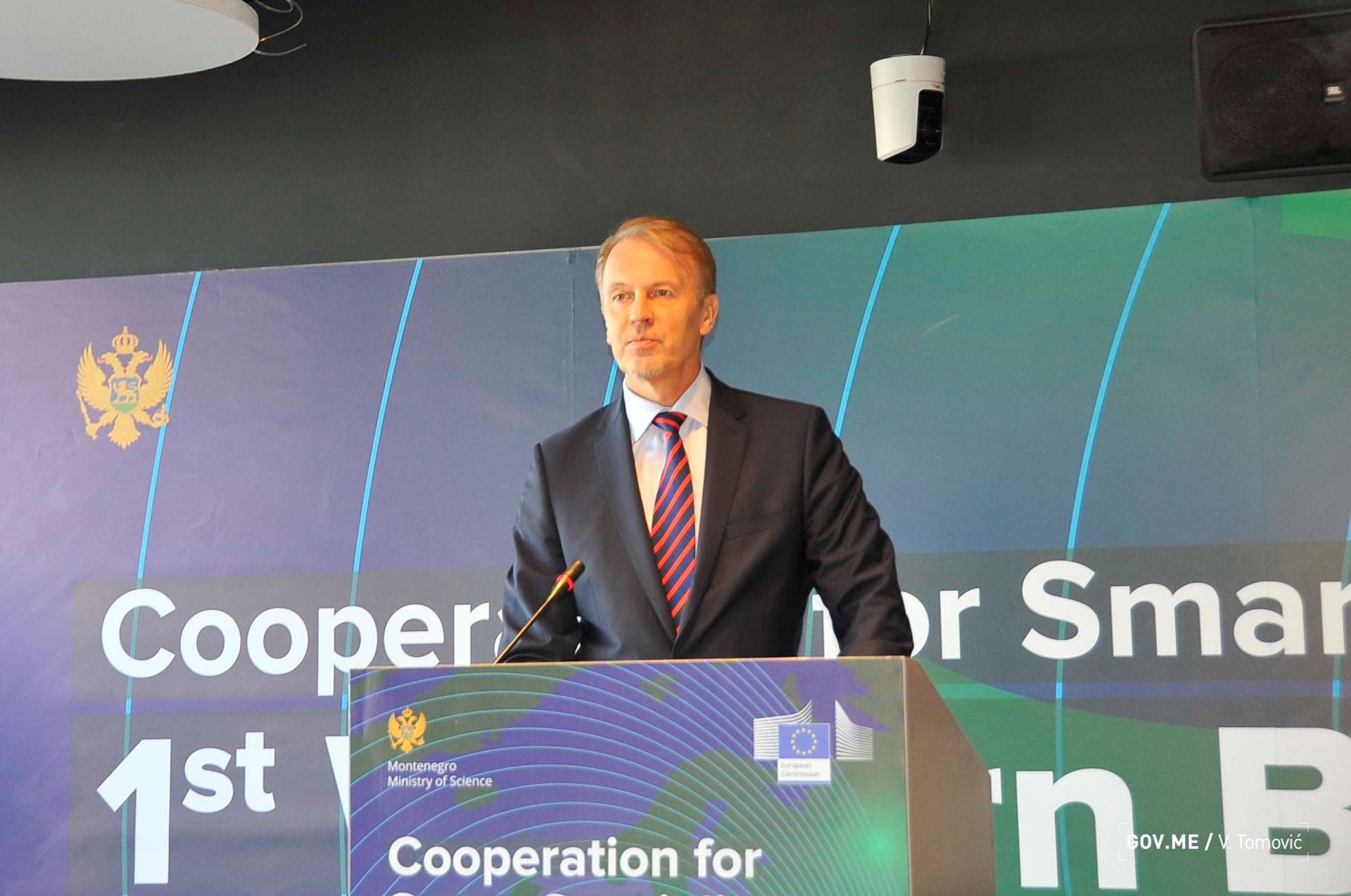
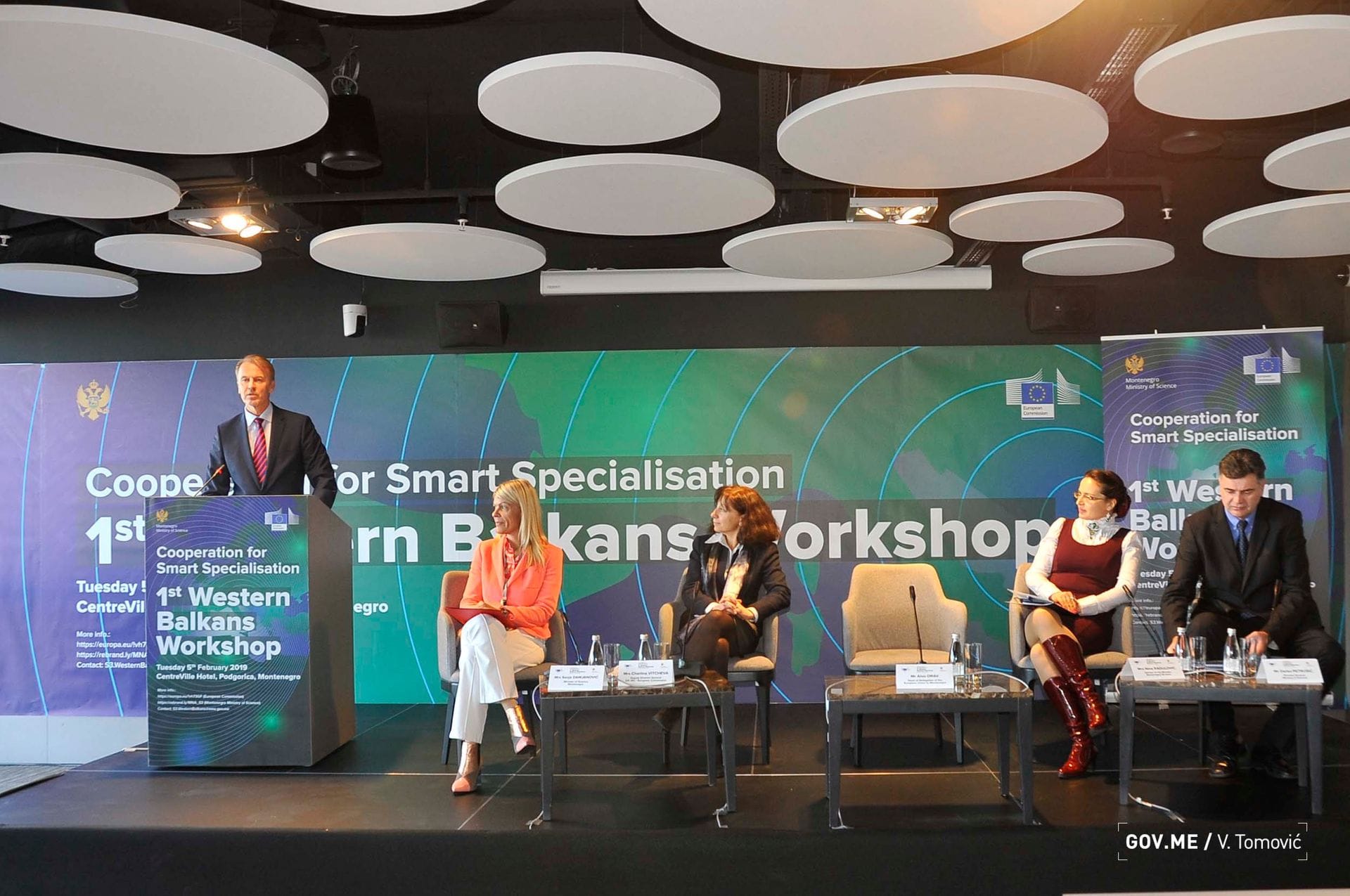
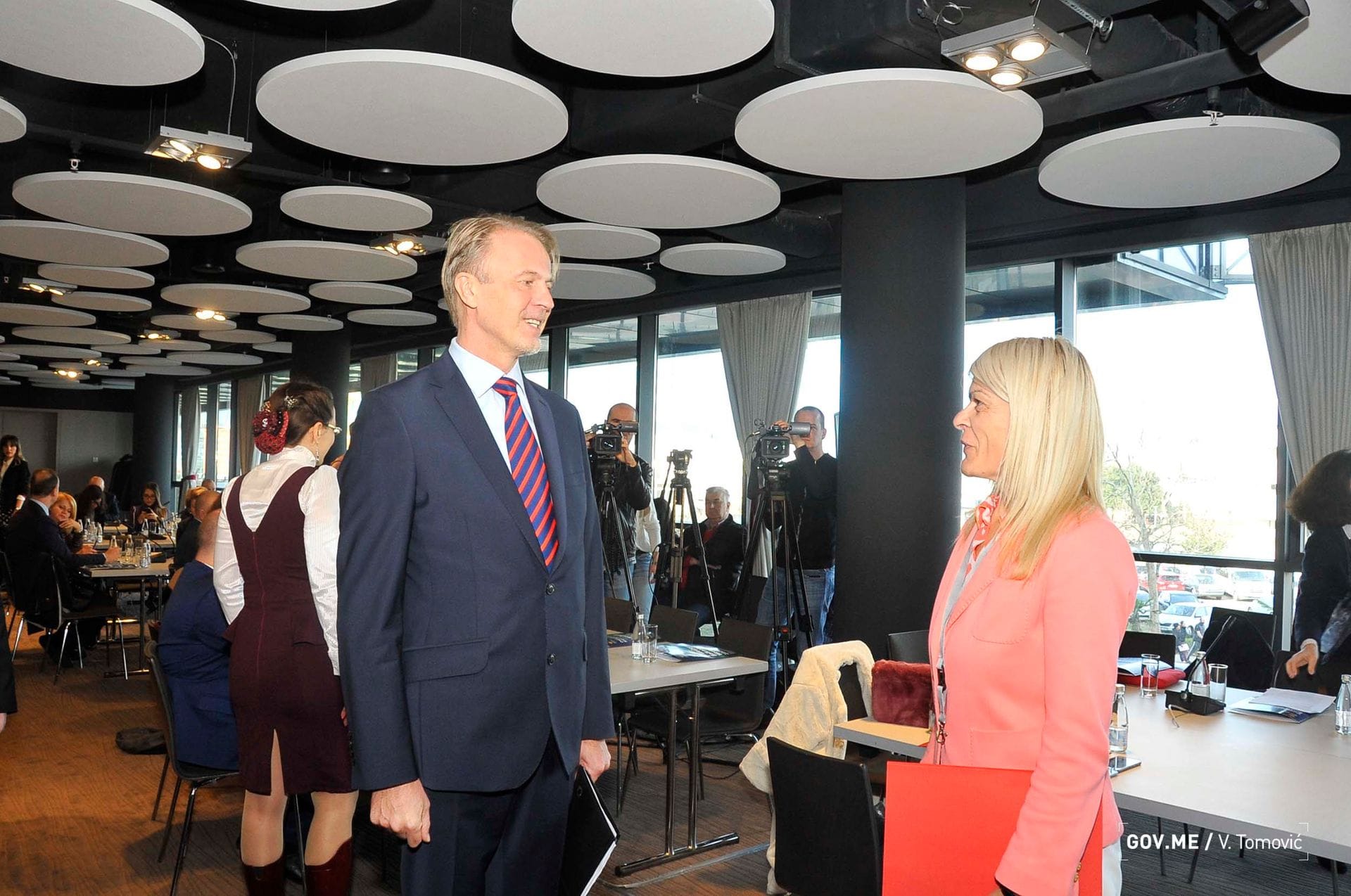
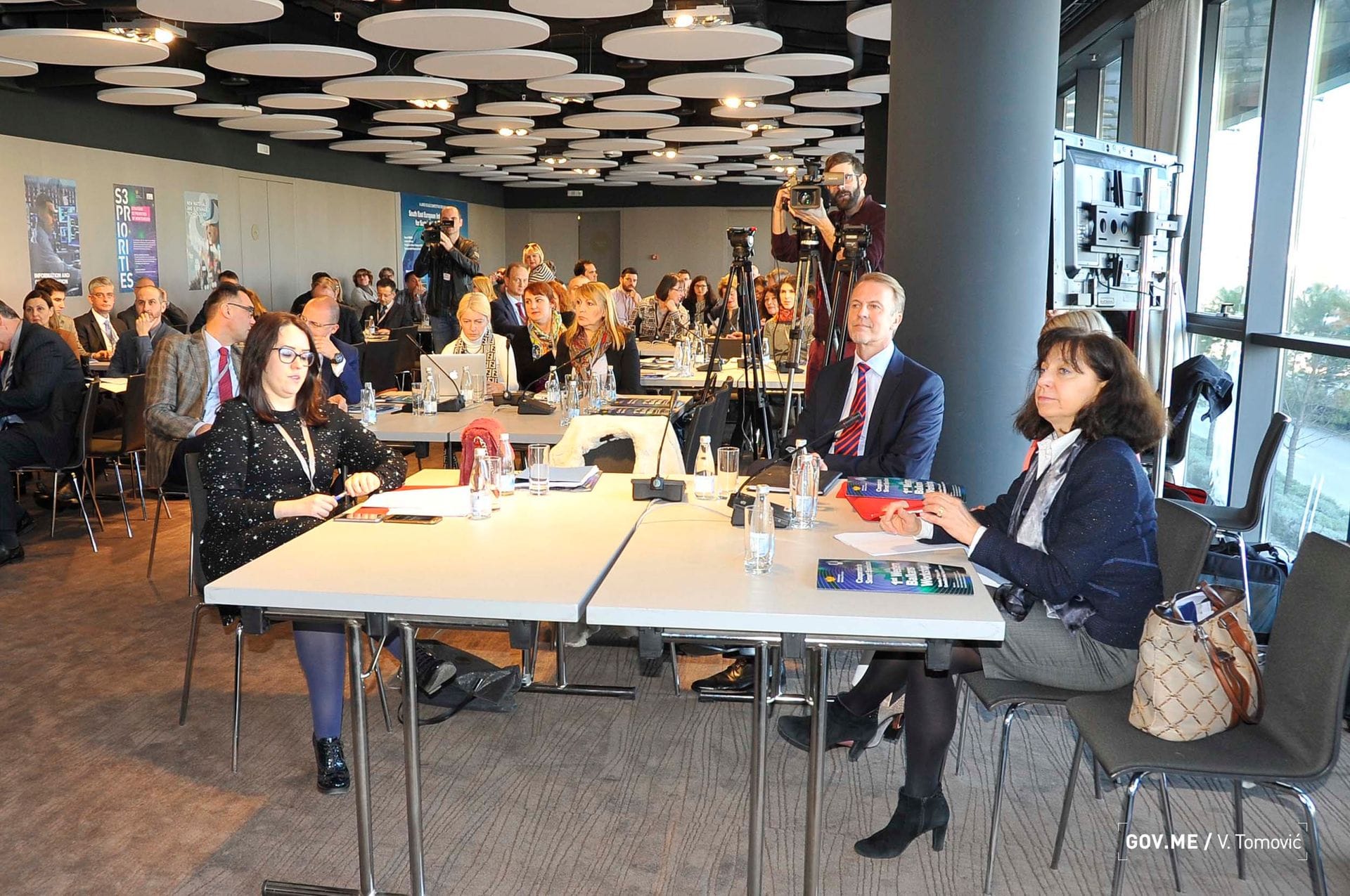
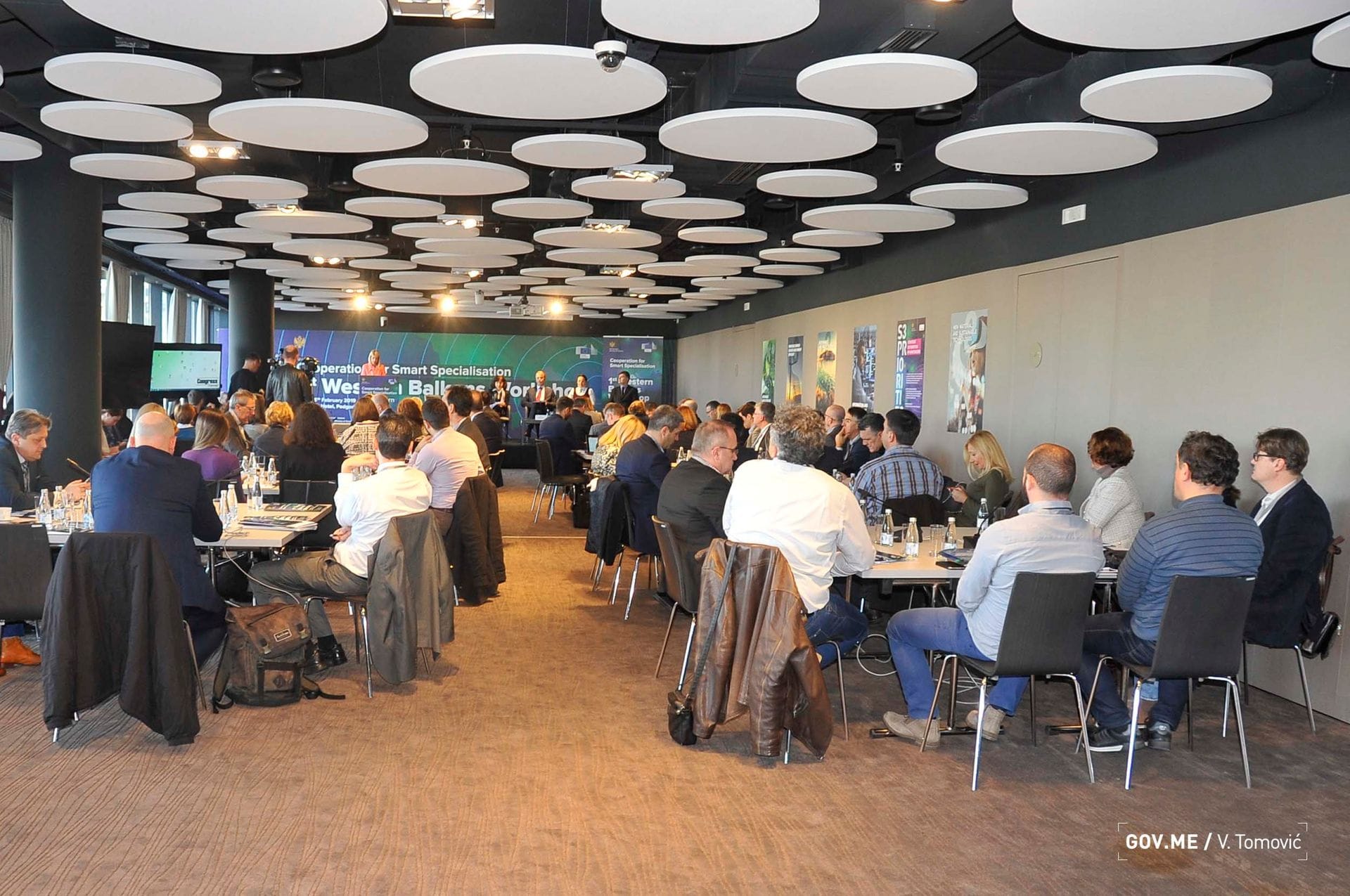
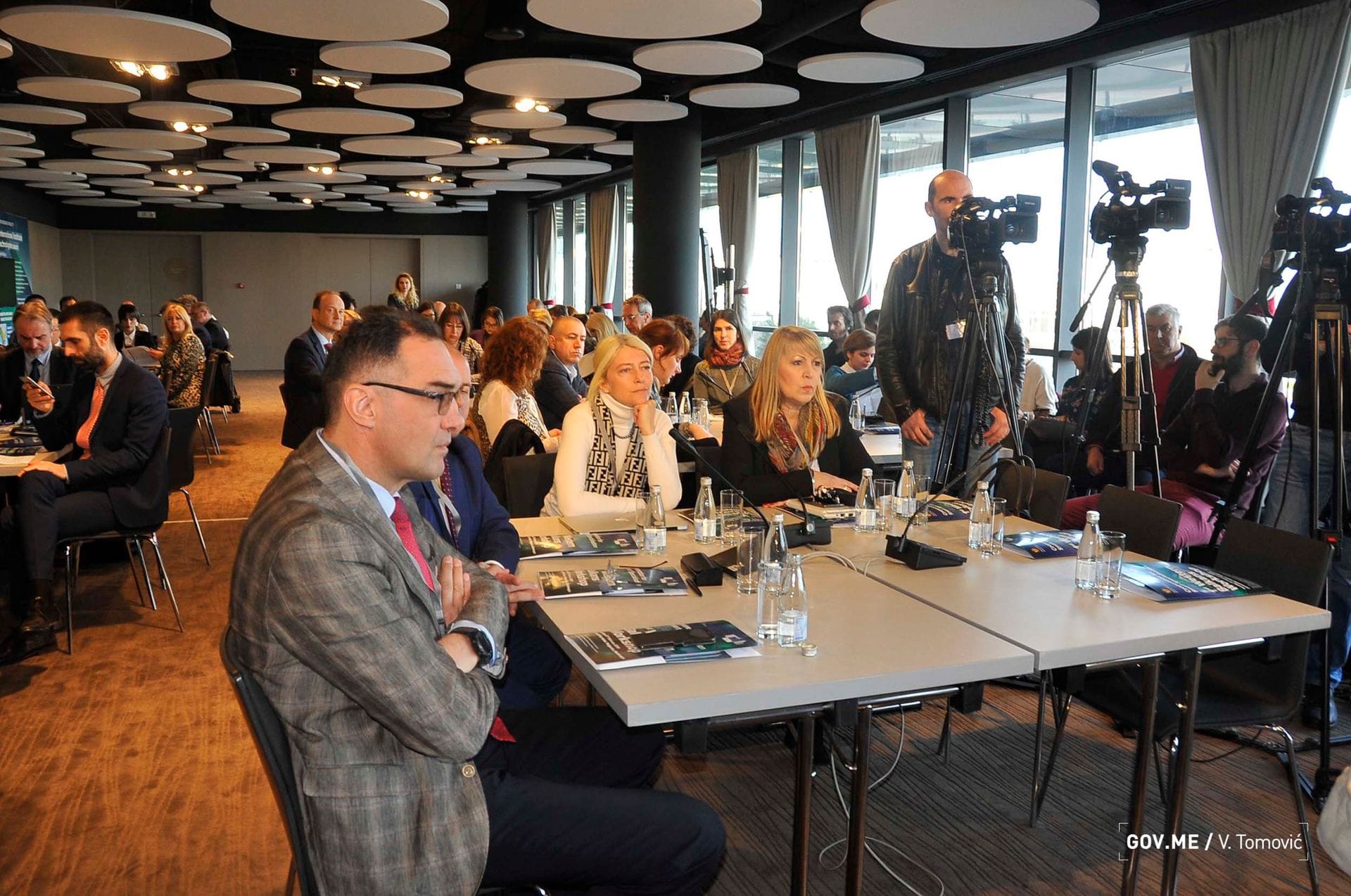
Ms Vitcheva congratulated all the stakeholders involved in the S3 preparation process, which is a complicated concept that is being implemented in the Member States across the European Union. She highlighted that development of the Smart Specialisation Strategies is a part of the Multiannual Action Plan for the Western Balkans, aspiring to become members of the European Union.
Ms Vitcheva emphasized that the high political commitment such a political commitment from Montenegro, aspiring country to join the EU, is exemplary.
She commended Montenegro's efforts to transform the economy based on science and research, with the assessment that it is also important in terms of the integration of the country into the EU processes.
“Especially for small economies, and those are all economies in the Western Balkans, smart specialisation strategies should be outward looking. We consider ourselves in the bigger reference framework which will help create complementarities, synergies“, Ms Vitcheva said.
Mr Aivo Orav, the Head of the Delegation of the European Union to Montenegro, highlighted that science and innovation represent a very important segment of European integration process and that the European Commission is ready to provide Montenegro with all possible support in that segment.
Mr Darko Petrušić, the Director General of the Directorate for Scientific Research Activity in the Ministry of Science and Ms Nina Radulović, an external expert of Montenegro Smart Specialisation Team outlined how the S3 process was organised in Montenegro and lessons learnt that can inspire also other countries of the Western Balkans region. They put a special focus on the explanation of the Smart Specialisation priority domains and the vision for their development.
During the Panel discussion: Sharing experiences - feedback from JRC, Member States and experts on Montenegro Smart Specialisation priority domains, which was moderated by Ms. Charlina Vitcheva, the strengths and challenges of the completed stages of the Smart Specialisation process in Montenegro are addressed. After commenting on Montenegro Smart Specialisation priority domains, the panellists focused on the EU experience and lessons learnt, thinking especially of the possible challenges concerning the implementation of the strategy and the opportunities resulting from international cooperation.
Roundtable discussion: How to initiate and nurture transnational cooperation for Smart Specialisation, was moderated by Mr. Manuel Palazuelos Martínez, Team Leader – Smart Specialisation Platform, DG JRC. In the roundtable, panellists presented the main points from the Smart Specialisation process in their own region or country, information about how it is organised, how far the process has gone so far, what challenges they have faced and how they solved them, as well as what challenges they anticipate in the upcoming period and discussed the potential for collaboration with respect to Montenegrin Smart Specialisation priorities, i.e. matching possibilities and complementarities with their own Smart Specialisation process, potential for regional value chains.
In the afternoon part of the workshop, Minister Damjanović presented the regional project called South East European International Institute for Sustainable Technologies (SEEIIST).
The final session called Governance of Smart Specialisation Strategy and key success factors was moderated by Ms Sanja Damjanovic. During this session, it was noted that good governance is particularly essential for the implementation of the Smart Specialisation Strategy, where the roles of institutions and teams need to be clear and the tools well defined. Examples of good practice in Bulgaria, Crete region, and FYR of Macedonia were presented.

